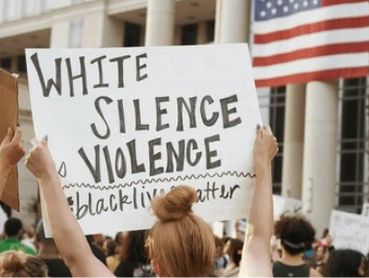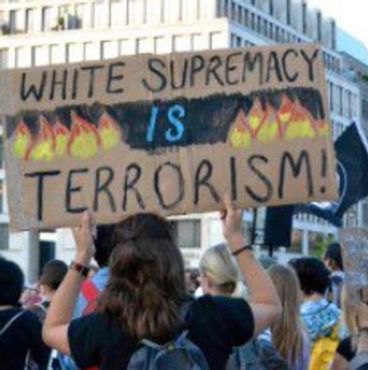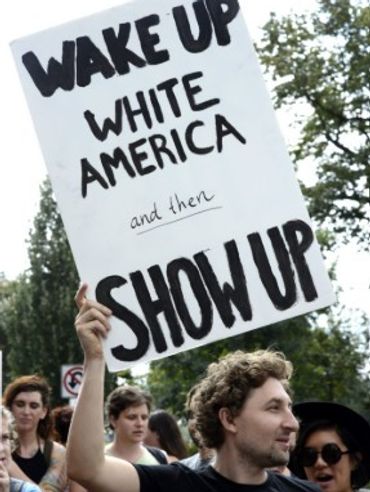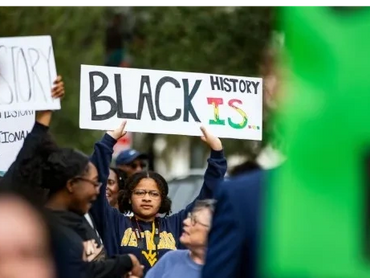We stand in solidarity and allyship with other movements, building unity and collective power for justice and lasting change.
-BNAAI Activist, Adcovates, Abolitionist, United
We are Black, Native, American, Afro-Indigenous United!

We recognize that all communities face struggles, and we support their success for the greater good of humanity.
Injustice wins when we stay silent.
Black Natives are woven into the fabric of every community!
Ending systemic racism requires white America to speak, act, and use its power for justice.
Ending systemic racism requires white America to speak, act, and use its power for justice.
Ending systemic racism requires white America to speak, act, and use its power for justice.

White America must face how systemic racism harms people of color and how often privilege is ignored. Racism is so ingrained that without examining our biases, we reproduce it. Justice cannot wait until tragedy strikes. Silence is no longer an option. Real change requires awareness, responsibility, and action. Racism is not just intellectual; it lives in our bodies. To act, we must feel the pain of people of color and let it drive us. Facing systemic racism and challenging white supremacy will hurt—but it is the only way forward (Banks, 2020).
Black LGBTQ+ people face compounded racism and homophobia.
Ending systemic racism requires white America to speak, act, and use its power for justice.
Ending systemic racism requires white America to speak, act, and use its power for justice.

Black LGBTQ+ people face unique challenges at the intersection of race, gender, and sexuality, often enduring discrimination and erasure in both Black and queer spaces. True allyship requires humility, consistent learning, and amplifying Black queer voices, not speaking for them. Allies can make an impact by educating themselves, supporting Black-led LGBTQ+ organizations, and creating inclusive, anti-racist spaces. Though progress continues, systemic racism and homophobia still shape access to safety, health, and belonging for Black LGBTQ+ communities (Psychiatry, 2024).
Understanding the barriers to coming out for LGBTQ+ people of color. (n.d.). Psychiatry.org.
Black people share deep and enduring roots in Judaism across Africa and the diaspora.
Ending systemic racism requires white America to speak, act, and use its power for justice.
Black people share deep and enduring roots in Judaism across Africa and the diaspora.

Black Jews are a diverse global community rooted in both African heritage and Jewish faith. Found across Africa, the Americas, and Europe, they include groups like the Beta Israel of Ethiopia, the Lemba of Southern Africa, and African American Jews. Their history spans from ancient traditions to modern conversions, reflecting resilience, faith, and cultural unity. Distinct from the Black Hebrew Israelite movement, Black Jews continue to build inclusion and visibility within global Judaism (Wikipedia, 2025).
Wikipedia contributors. (2025c, October 7). African-American Jews. Wikipedia, The Free Encyclopedia.
Abortion restrictions deepen health inequities for Black women.
Black transgender people face compounded violence and discrimination from racism and transphobia.
Black people share deep and enduring roots in Judaism across Africa and the diaspora.

Anti-abortion laws disproportionately harm Black women, who face systemic racism, economic barriers, and higher maternal mortality. In response, Black women led the Reproductive Justice movement, emphasizing the right to have or not have children, bodily autonomy, and safe communities. Since Roe’s overturn, access has declined, forcing travel and creating added burdens for marginalized groups. Ensuring equitable abortion access, regardless of race, income, or location, remains essential to reproductive justice ( Fuentes, 2023).
White privilege limits opportunities and erases the identities of Black Native communities.
Black transgender people face compounded violence and discrimination from racism and transphobia.
Black transgender people face compounded violence and discrimination from racism and transphobia.

White privilege is the unearned advantage white people have in a society shaped by historic and systemic racism. It shows in everyday life, from being treated as “normal” and granted the benefit of the doubt to access to wealth, education, and safety. It is not the absence of struggle, but a structural advantage denied to people of color. Recognizing it means seeing both its subtle daily effects and its roots in conscious and systemic decisions, and understanding how it perpetuates inequality (Collins, 2018).
Collins, C. (2018, August 15). What is white privilege, really? Learning for Justice.
Black transgender people face compounded violence and discrimination from racism and transphobia.
Black transgender people face compounded violence and discrimination from racism and transphobia.
Black transgender people face compounded violence and discrimination from racism and transphobia.

Black transgender people face compounded oppression from anti-Black racism and transphobia, known as transmisogynoir. They endure extreme levels of violence, homelessness, unemployment, and discrimination in healthcare, housing, and education. Black trans women and femmes are especially targeted, facing higher risks of assault and murder. Even within LGBTQ+ and racial communities, they experience exclusion and erasure, leading to deep mental health challenges. Protecting Black trans lives means confronting racism, transphobia, and silence wherever they exist (Gender, 2023).
GenderGP. (2023, February 2). The intersection of being Black and trans. GenderGP.
Mixed Black and Asian people face exclusion, bias, and identity-based struggles.

Biracial Black and Asian individuals face exclusion, colorism, fetishization, and double discrimination. Told they are “not Black enough” or “not Asian enough,” they navigate conflicting communities and stereotypes, risking mental health challenges like depression and imposter syndrome. Supportive spaces are vital for embracing identity and fostering well-being ( Murphy-Shigematsu, 2020).
KAMALA! Black and Asian biracial identities. (2020, September 17). Psychology Today.
Biracial communities navigate unique challenges and prejudice.

Biracial Black people face unique challenges, including navigating complex identities, experiencing racial invalidation, and confronting discrimination from both monoracial and mixed communities. These pressures can affect mental health but also foster resilience, adaptability, and broader cultural understanding (Campion, 2019).
Mixed Black and Latina people face colorism, identity conflict, and double discrimination.
Mixed Black and Latina people face colorism, identity conflict, and double discrimination.

Black and Hispanic mixed-race individuals face exclusion, colorism, and prejudice from both communities and society. Misidentification, family bias, and colorism leave darker-skinned Afro-Latinos vulnerable to discrimination, exclusion, and stereotyping. Institutional inequities, health disparities, anti-Blackness, underrepresentation, and data erasure compound these struggles. Latinxs remain exposed to systemic inequities from policing to voter suppression. Solidarity with Black and Indigenous communities is essential for liberation (Villarreal, 2020).
Humanity is intertwined with Black Natives, together, we heal what divides us.
"Racism exists in our minds and bodies, and to end it, we must first recognize and feel it. White people must take responsibility for transforming both themselves and the unequal systems they uphold. Silence is no longer an option."
- Amy Banks MD


Silence protects oppression!
No more silence. No more waiting.
White America must stop ignoring systemic racism and actively use its power to confront harm and forge justice.
All Voices, One Fight, together we end Injustice for All.



















Racial gaslighting undermines confidence, distorts reality, and fuels distress while preserving systemic racism by deflecting accountability and sustaining white supremacy.
- BNAAI Activist
Stop racial gaslighting to end the denial of systemic racism
Challenge racial gaslighting to dismantle the systems and power structures it seeks to preserve.

Racial gaslighting is a form of psychological manipulation that makes people, especially those from marginalized racial groups, doubt their experiences of racism by denying, minimizing, or blaming them for it. It reinforces racial hierarchies and can cause emotional and psychological harm. Tactics include dismissing racism as isolated, labeling people as “too sensitive,” or denying events entirely. Within critical race theory, claims of “anti-white racism” are often viewed as a gaslighting strategy that creates false equivalence and reverse victimization, deflecting attention from systemic racism. Examples include “All Lives Matter” responses that shift focus from racial injustice (Meldrum, 2021).
’L. M. (2021, February 5). Gaslighting: The silencing weapon. UNH Today.
Internalized racism harms Black Natives' mental health, causing shame, anxiety, and self-doubt.

Internalized racism occurs when people from marginalized groups adopt the biases of a dominant culture, viewing their own identity as inferior or shameful. It often develops in societies that privilege whiteness, causing individuals to hide, reject, or feel embarrassed by their heritage in pursuit of acceptance. This self-blame mirrors gaslighting—where oppression convinces victims they are the problem. Signs include denying one’s culture, conforming to dominant norms, distancing from one’s community, and defending racist behavior. Overcoming internalized racism requires awareness, cultural pride, and rejecting the narratives that sustain inequality (Preston 2020).
White America is tired of turning a blind eye to systemic racism, and it must leverage its privilege to confront the harm it has caused and work to create a more just and equitable society.
- BNAAI United
Copyright © 2025 Black Native American Afro Indigenous LLC - All Rights Reserved.
This website uses cookies.
We use cookies to analyze website traffic and optimize your website experience. By accepting our use of cookies, your data will be aggregated with all other user data.